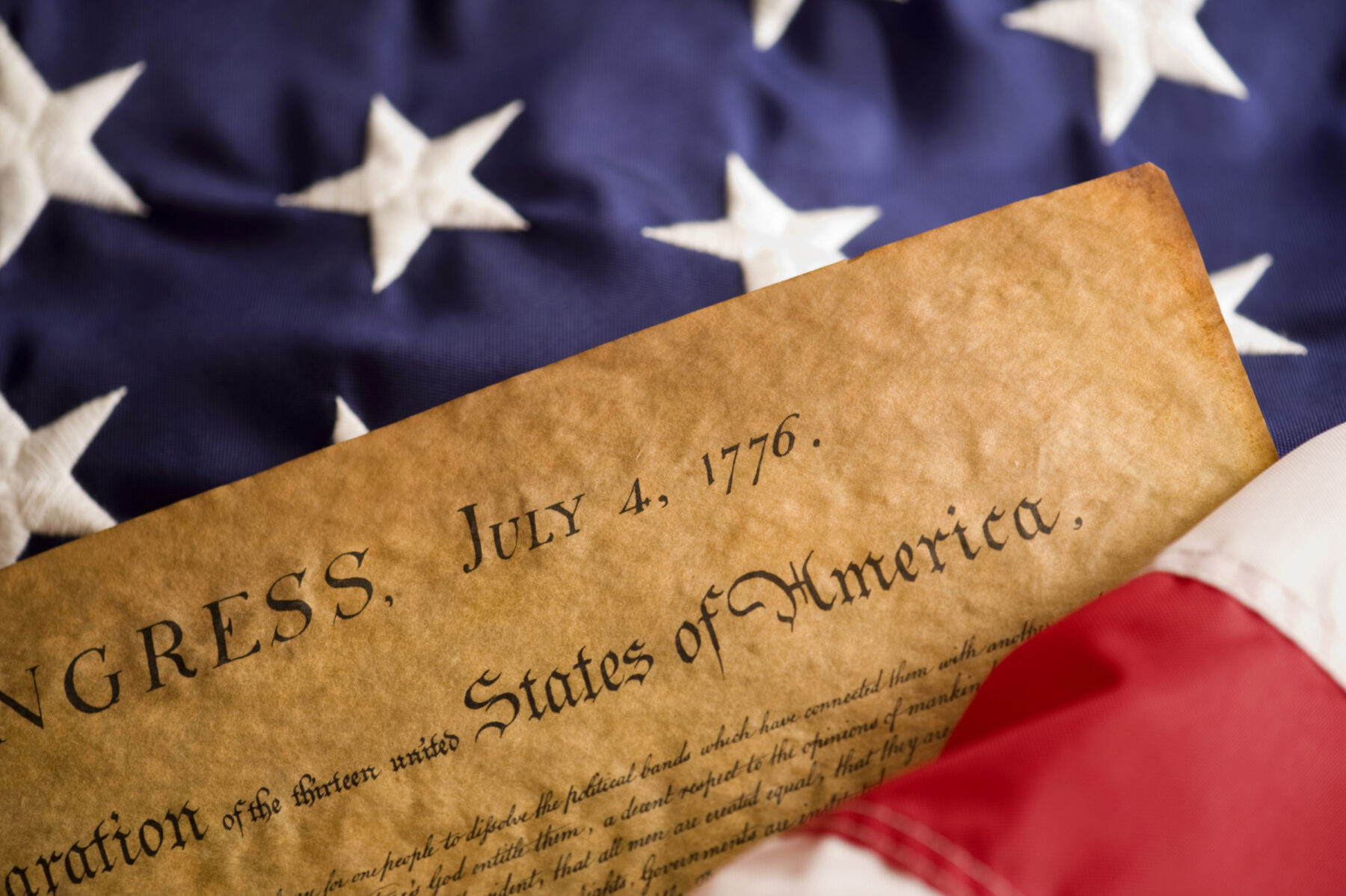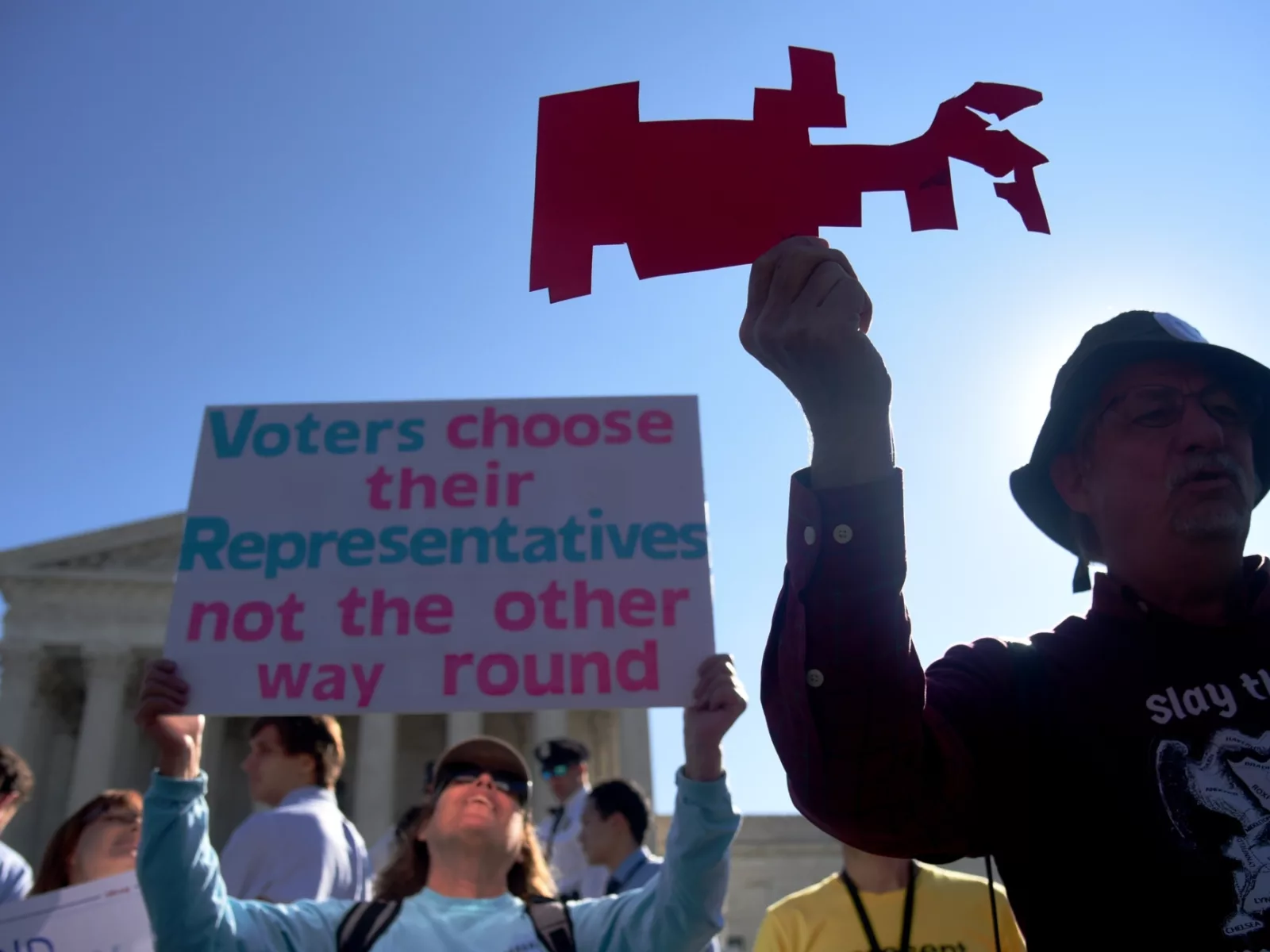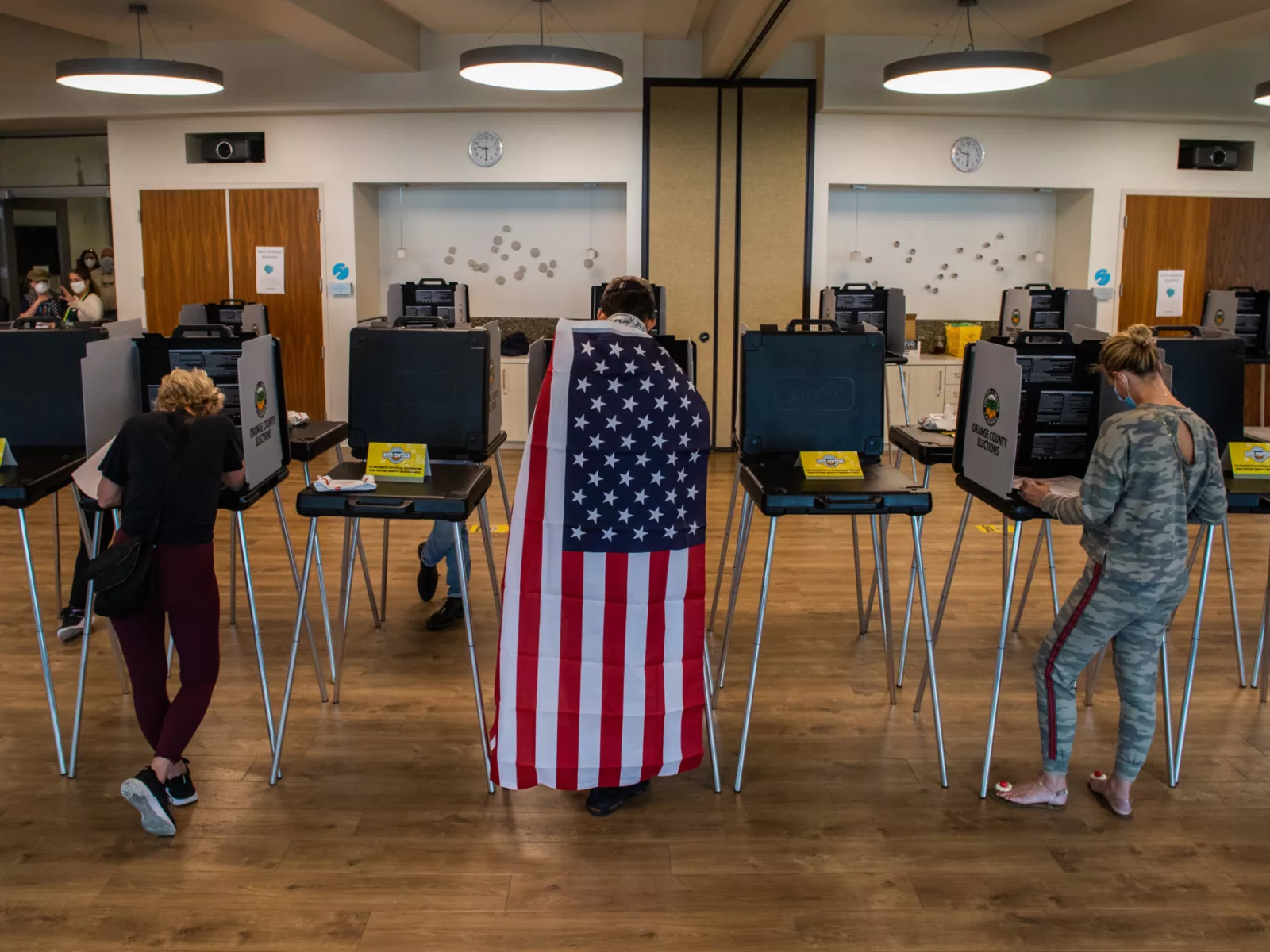Katherine Gehl is a former corporate CEO who now devotes her time to trying to reform the way we nominate and elect politicians. She finds continuing inspiration in the Declaration of Independence, nearly 250 years after it was written.
“The Declaration of Independence brings up the point that people have the right to create systems of government that make likely their safety and happiness,” she said. But if the government becomes destructive of these protections, she said, the Declaration states clearly that it’s the right of the people to alter the government.
That’s what she’s trying to do now – alter our system of government. Gehl is founder and chair of the Institute for Political Innovation, which is seeking to implement Final Five Voting. All candidates would appear together on the same primary ballot, with the top five vote-getters proceeding to the general election. There, a winner would be chosen through a series of instant runoffs, which allows voters to express their preferences among candidates until one receives support from a majority.
“When conditions fall short, we have the right to reevaluate,” said Lee Drutman, a political scientist at New America, a think tank that strives “to realize our nation’s highest ideals.” “Maybe it’s not independence from the king, but it’s a refashioning of how we do politics in America, a rethinking of our party system or electoral institutions.”
The Declaration of Independence was not just a founding document but one that has continued to influence Americans’ relations with government ever since. The famous opening section about “self-evident” truths – “that all men are created equal, that they are endowed by their creator with certain unalienable rights, that among these are life, liberty and the pursuit of happiness” – was a truly revolutionary statement that planted the seeds for the ongoing struggle for individual rights.
Many Americans are worried that we’re in danger of losing that struggle. Serious-minded people are sounding the alarm that democracy is truly in peril, that the country’s at risk of slipping into authoritarianism. Short of that, many citizens are increasingly concerned our political institutions are failing to reflect most people’s preferences. “Are we doing a good job of measuring the consent of the governed, upon which governments should rest?” asks Rob Richie, president and CEO of FairVote, which promotes ranked-choice voting and other electoral reforms.
Richie said that today’s levels of polarization is creating a crisis – but one that in turn offers opportunities for ingenuity. Like other advocates, he’s hopeful that the appetite for change can be translated into positive action. Maybe not a revolution, but a real rethinking about how we choose our leaders and lend them our power.
“It’s one of those moments of reevaluation and reform that seems to happen every 60 or 70 years or so in America,” Drutman said, pointing to past periods such as the Revolution, the Progressive Era of the early 20th century and the civil rights movement of the 1950s and 1950s. “I think we’re increasingly ripe for some sort of really, truly transformational change that makes American democracy more representative and inclusive.”
What Jefferson Meant
The Declaration of Independence was less an act than an explanation. Having decided to break with King George III and the British empire, the Continental Congress in the summer of 1776 put Thomas Jefferson in charge of writing a document laying out the reasons why. Some of the colonies had already drafted their own declarations and Jefferson drew upon and improved sentiments that were then widely expressed, notably in the Virginia Declaration of Rights, written by George Mason a month earlier.
John Hancock and the other signers knew they were taking a chance, publicly embracing a traitorous document. Most of Jefferson’s text was an indictment of King George, outlining the particulars of how he’d squelched freedom.
“One aspect of the Declaration worth recalling in these hyperpartisan times is its charge against the king that ‘he has excited domestic insurrections amongst us,’” notes Kevin R. Kosar, a senior fellow at the American Enterprise Institute, a conservative think tank.
“Any political leader has a fiduciary relationship to those who they govern,” Kosar continues. “He is entrusted to look out for their interest and the interest of the country. Hence, it is particularly dreadful for a leader to turn citizens against one another, especially for self-serving purposes.”
The Declaration of Independence, though celebrated and cheered as it was read aloud in town squares throughout the colonies, was not a primary concern for people busy fighting a war. It was largely forgotten until about the 1820s, when Americans rushed to preserve documents and otherwise remember the founding generation that had by then largely passed. As it was rediscovered, its establishment of human equality as a “great principle” and “the foundation of all political, of all human institutions,” as writers at the time put it, had eclipsed its original purpose of asserting the right of revolution, historian Pauline Maier notes in her book American Scripture: Making the Declaration of Independence.
The idea that “all men are created equal” came from someone who enslaved others. In editing the Declaration, the Continental Congress removed references to slavery and the slave trade. The debate about what equality means and who is entitled to it has continued ever since.
Still, Jefferson’s words have remained aspirational not only to Americans but people all over the world who have sought freedom and democracy. “We hold these truths to be self-evident – that ALL men are created EQUAL!! that they are endowed by their Creator with certain inalienable rights; that among these are life, liberty, and the pursuit of happiness!!” wrote African-American abolitionist David Walker in his 1829 An Appeal to the Colored Citizens of the World, using punctuation to underscore his argument that rights must extend to non-whites.
Ongoing Desire for Change
Aside from expressing the notion that there are natural rights, the Declaration of Independence continues to have resonance thanks to its argument that people have a right to change governments to suit them best.
“A key passage of the Declaration that speaks to me is the notion that government derives its just powers from the consent of the governed,” said Nick Troiano, executive director of Unite America, which promotes electoral reforms. “Today, a major challenge is that our electoral system is distorting where consent truly comes from by giving disproportionate influence to partisan and special interests, rather than we, the people.”
Clearly, there’s a hearty appetite for changing electoral systems. In its current special election to fill a vacant House seat, Alaska is using a “final four” voting system, with the top-four finishers from the June 11 primary proceeding to a general election using ranked-choice voting on Aug. 16. The system is new in Alaska but ranked-choice voting has been used in state and federal elections in Maine since 2018, along with cities such as New York, Minneapolis and San Francisco.
In November, voters in Portland, Ore., will decide whether to hold city council elections using proportional ranked-choice voting, meaning every sufficiently numerous group of voters would elect council members in proportion to their share of the vote. “The history of invention and reinvention in United States election methods has not been regular but consistent,” said FairVote’s Richie. “It often really heats up when democracy becomes an issue itself.”
This is one of those moments — a time to repair our system of governance and our methods for making the will of the people known. In that regard, the Declaration of Independence remains an inspiration, not least among those individuals and institutions continuing the work of making a more perfect union.
“The document means so much to me,” Gehl said. “It basically says, if things aren’t working, we the people have the right to alter them. And that is, again, what we must do.”



















